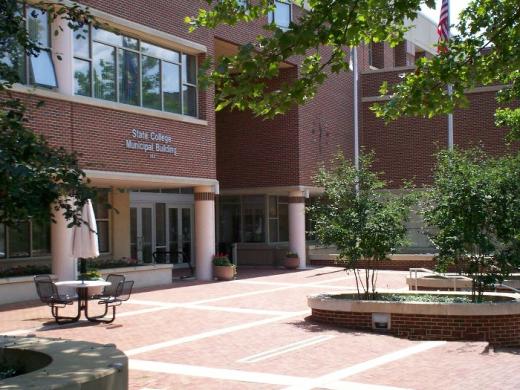In the perpetual struggle for strong town-gown relations, the college town of Fort Collins, Colo., thinks it’s found a useful new tool.
A voluntary party-registration program began there in 2009, encouraging Colorado State students to notify authorities before they host residential social gatherings.
If a group of students voluntarily registers its party in advance, the listed student organizers will receive a special warning from local officials if someone calls in a noise complaint about their gathering.
The warning gives the students a grace period to bring the event under control, allowing them a chance to avoid fines and criminal charges.
For students, permanent residents and the police, it’s been a win-win-win approach so far, a Fort Collins community liaison told State College-area leaders in a webinar last month.
A variety of Penn State and borough officials appeared very open — upbeat, even — about considering the concept in State College, though no formal proposals here have been put forth yet.
‘The mayor (Elizabeth Goreham) and I both think it’s a good idea,’ State College Borough Council President Ron Filippelli said. He is very interested in concept, though questions remain over how the borough and Penn State, in tough financial times, could organize and fund such an effort, he said.
‘We don’t have a lot of surplus,’ Filippelli said.
Still, ‘we will certainly address (the idea) and see if we can make it work’ somehow, Borough Council member Theresa Lafer said.
If State College pushes forward with it, she said, she imagines it’ll take at least a year to implement.
Back in Fort Collins, community liaison Adrienne Bettis said the voluntary party-registration effort grew out of a broader, multi-year effort to improve relations among CSU students and permanent Fort Collins residents.
Her position, funded by both CSU and the city, allows her to work directly with city government and university and student concerns, Bettis said. She has become a cornerstone of the party-registration effort in Fort Collins, publicized in part through a $1,000-per-semester advertising campaign.
Among the successes of the party-registration effort there that she cited:
- Complaints about parties have been halved roughly since the program’s implementation.
- Ninety-seven percent of those who registered their parties said they would do so again.
- Police are saving 20 to 30 minutes of time per warning issued.
- Students have saved as much as $85,000 in fines since the program began.
The webinar in which Bettis presented these data was hosted at Penn State by Damon Sims, the university’s vice president for student affairs. He said that Fort Collins ‘is a community that we’ve had our eyes on for a while.’
‘We all have to pull together in various ways to try to find the best answer to this,’ Sims said, referring to town-gown relations. ‘ … We just have to sustain the conversation.’
Reaction among local borough and university representatives appeared optimistic, many agreeing that ‘student buy-in’ would be critical here. A representative from the University Park Undergraduate Association said he thought the party-registration effort would be successful in State College.
Students ‘really do want to make sure that they’re not disrupting other people,’ he said.
‘A lot of what we’ve been trying to do the last few years is to build community,’ especially in areas around the University Park campus, State College borough Manager Tom Fountaine said. ‘ … The more you build those personal relationships, the less likely you are to do something disruptive in the neighborhood.’
Already, some borough residents said, Penn State fraternities have substantially improved their behavior in recent years.
Beyond expenses, though, specifically how a party-registration effort could play out in State College is uncertain. For one thing, Fort Collins has a smaller university-student base than State College does. For another, its community-relations operation in conjunction with CSU seems — in some respects, at least — to be more formalized and structured than State College’s arrangements with Penn State.
Goreham aired a hopeful tone, however.
‘It would strengthen our town-gown relationship because we (would) have to rely on each other,’ she said of a party-registration effort. ‘It could lighten some of the police burden for noise. … (And) it’s not overly bureaucratic.’



